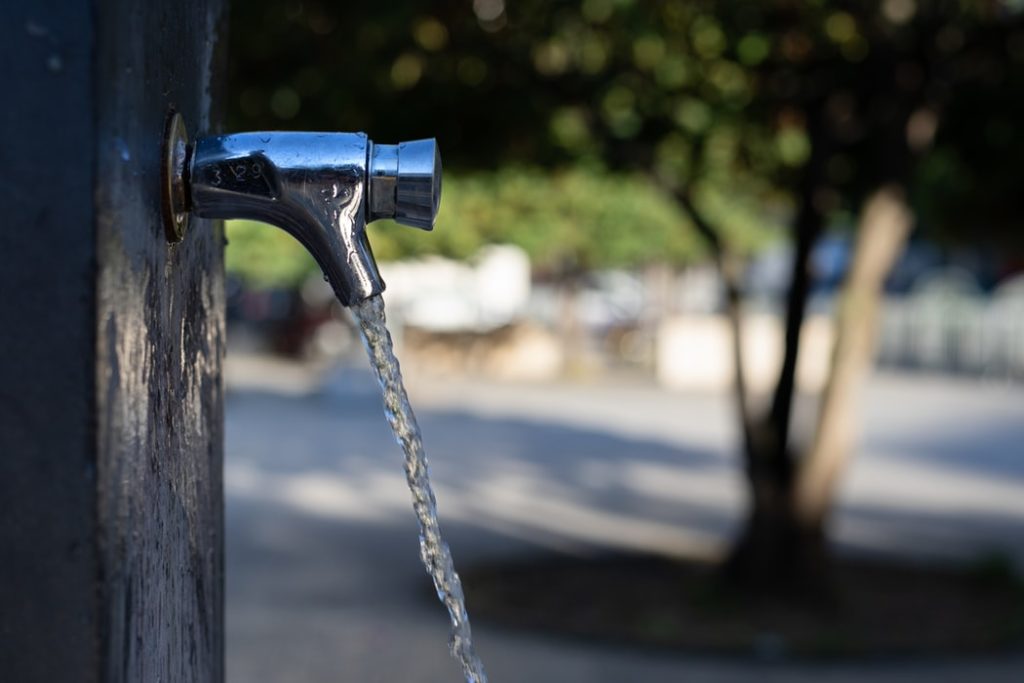The European Commission announced last week that a provisional agreement has been reached by the European Parliament and the Council on a revision of the Drinking Water Directive.
The agreement is based on a Commission proposal in February 2018 and is a follow-up of a European Citizens´ Initiative, Right2Water, which was launched in May 2012 and gathered more than 1.8 million signatures.
The European Citizens’ Initiative was established in 2012 as an instrument for participatory democracy. It allows 1 million citizens from at least at least 7 different Member States to invite the European Commission to propose a legal act in areas where the Commission has the power to do so.
The Right2Water initiative was the first initiative to be accepted by the Commission. At the press briefing on Friday (20 December), a Commission spokesperson said that it apparently is also the only initiative so far that has resulted in a legislative proposal.
The Right2Water initiative called on EU to oblige Member States to ensure that all inhabitants enjoy the right to water and sanitation; that water supply and management of water resources not be subject to internal market rules and that water services be excluded from liberalization; and that the EU increases its efforts to achieve universal access to water and sanitation.
In this case, there already existed a 20 year old drinking water directive which had been amended in the past. The Commission responded rapidly and positively to the initiative after having analysed the water issues and any remaining gaps in EU legislation in a Communication in March 2014.
It would still take six years of evaluations and public consultations for the EU institutions to reach an agreement. The revised directive aims at improving the quality of drinking water and access to it as well as provide better information to citizens.
Strangely, the Commission has not yet communicated the agreement to the Right2Water ECI. The committee has expressed disappointment with earlier versions of the text. Asked by The Brussels Times whether the final text addressed all issues raised by European Citizens´ Initiative, Pablo Sanchez, coordinator of the initiative, replied:
"Although we haven't seen the final compromise, we are sceptical that it meets our demands. The human right to water isn't just a matter of increasing the number of water sources. The issues of affordability and accessibility were not satisfactory dealt with in the latest text we have seen. We were expecting more ambition from the Parliament and the Council."
The Commission however gave credit to the Right2Water ECI. “Citizens have called on the Commission loud and clear to propose an initiative to ensure guaranteed access to safe drinking water for Europeans,” said Commissioner for the Environment, Oceans and Fisheries, Virginijus Sinkevicius.
“The co-legislators have also heard that call and agreed to modernise EU rules, improving the quality of drinking water on the basis of the most recent standards, increasing access to water for all and enhancing transparency in this essential sector,” he added.
Currently, drinking water is controlled “end-of-pipe”. The newly agreed rules are based on a risk-based-approach. Another important change in the legislation will give the public easy, user-friendly – including online – access to information about the quality and supply of drinking water in their living area, improving confidence in tap water.
The agreed text builds upon and goes even beyond the recommendations of the World Health Organisation. The new EU rules will become a global standard and reflect state of the art technological innovation, says the Commission. They will minimise harmful impacts of pollution on both human health and on natural resources, fully in line with the European Green Deal.
The revised directive is expected to have a positive impact on the environment because it is assumed that as consumer confidence in tap water increases, consumption of bottled water will fall.
The rules will also tackle emerging pollutants such as micro-plastics, endocrine disruptors as well as new types of chemicals (PFAs). The agreement includes detailed hygienic requirements for materials in contact with drinking water and gives the European Chemicals Agency a key role to ensure that only safe substances can be used in pipes and taps in contact with water.
The directive says that access to safe drinking water and sanitation is inextricably linked to the right to life and human dignity, as recognised by the Charter of Fundamental Rights of the European Union, and to the need for an adequate standard of living.
On a global level, the situation is much more serious and the right to water is one of the 17 Sustainable Development Goals adopted by UN in 2015. The goal is to achieve universal and equitable access to safe and affordable drinking water for all by 2030. Currently, 2 billion people use contaminated drinking water sources and live with the risk of reduced access to freshwater resources.
M. Apelblat
The Brussels Times

